-
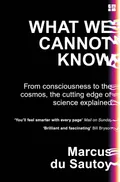
Book Review
What We Cannot Know by Marcus du Sautoy
This book explores the limits of science, not in terms of what we've so far found out as a civilisation, but in terms of what we could ever find out. Are there fundamental limits to what we can ever know about the universe, or questions that we'll never be able to answer? Marcus du Sautoy considers several areas in which science may not help us to answer the questions we have about the universe. The first area he considers is the concept of chaos: the idea that there are systems whose future states we cannot predict because small changes in starting conditions result in large fluctuations of
-
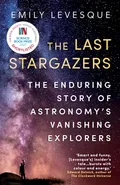
Book Review
The Last Stargazers by Emily Levesque
I've read books about astronomy before, such as the excellent Our Universe, and these have touched on the methods used by astronomers to learn about the universe around us. But this book takes an astronomer's eye view of the field, showing us what it's like to be an astronomer working with telescopes, collecting images and data, and figuring out new things about how the universe works and what's out there. One of the problems with observing space from Earth is that the atmosphere affects our ability to see clearly. So we build telescopes in places to try and minimise
-
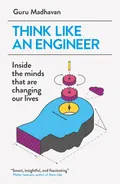
Book Review
Think Like an Engineer by Guru Madhavan
In the modern world, where almost every area of our lives is influenced by the technology we use, engineering plays a hugely important role. This book aims to explore what it takes to invent new technology, to solve problems, and to bring effective products into existence. One topic discussed early in the book, of particular relevance to a website about science such as this one, is the difference between science and engineering: If the core of science is discovery, then the essence of engineering is creation. Primarily, the book uses real-world examples to convey various aspects of the e
-
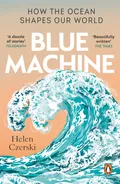
Book Review
Blue Machine by Helen Czerski
By the same author as Storm in a Teacup, Helen Czerski, this book explores the nature of our oceans, and uses the analogy of earth's oceans operating like a giant machine, as currents and tides move water around the planet. We learn about the different oceans, how they are connected, and the impact they have on our planet as a whole. I was interested to learn that the ocean isn't uniformly mixed, and that there tend to be different layers of temperature and salinity in the ocean. Sunlight only penetrates a short way into the ocean below the surface, so this repre
-
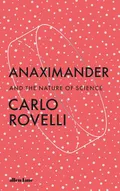
Book Review
Anaximander by Carlo Rovelli
Anaximander was a philosopher who lived between 610 and 546 BCE in the ancient Greek city of Miletus. This book makes the case that his contributions make Anaximander a significant figure in the development of scientific thinking, and explores his ideas in the context of the theory and practice of science. The first part of the book describes the state of knowledge and the contributions made by Anaximander and his contemporaries. These include the idea that the Earth floats in space (previously it was assumed that 'up' and 'down' were universal concepts and therefore the earth had to be rest
-
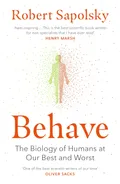
Book Review
Behave by Robert Sapolsky
Human behaviour is complex, and this book aims to capture and explain at least some of the complexity that goes into the decisions we make. Its focus, as the subtitle suggests, is on those behaviours that could be considered good or bad, and there is a particular emphasis on those occasions when the more rational parts of our brain override the more instinctive parts, in order to do the 'right thing'. The early part of the book takes as an example a hypothetical decision that someone makes to act in either a good or bad way, and attempts to explain how various factors contributed to the fina
-
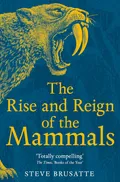
Book Review
The Rise and Reign of the Mammals by Steve Brusatte
This book is a follow-up to The Rise and Fall of the Dinosaurs, the author having taken more of an interest in mammal palaeontology since that book was published. It takes a similar approach to that earlier tome, covering fossil discoveries and DNA evidence, while telling the story of the development of mammals throughout their evolutionary history. The story starts in the Carboniferous period, with mammals branching off from reptiles. The ancestors of modern mammals were still egg laying, scaly, hairless creatures at this time, and I was interested
-
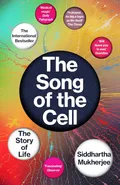
Book Review
The Song of the Cell by Siddhartha Mukherjee
Cells are found in all forms of life; in bacteria, archaea, plants, fungi and animals. In fact, this book makes the case that we define the existence of life by the existence of cells. Having made this case, however, the book then proceeds to ignore many other forms of life, and focuses on mammalian, and particularly human, cells. There is relatively little about plant cells, or how the first cells might have evolved. Rather than telling the entire story of the cell from the very beginning of life, the author focuses on the areas he has worked on in his career and knows the most about: human cells, and diseases like cancer. Happily, I think this focus, and the personal reflections and anecdotes (we meet several of Mukherjee's patients throughout the book) works really well.
-
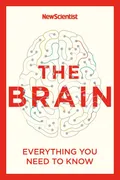
Book Review
The Brain by Alison George
This book claims to be able to help you improve your thinking in various ways, and understand more about how your brain works. It's organised into sections covering things like perception, intelligence, consciousness, creativity, and memory. Within each section, the book is written in very short chapters, each on a single topic, that read like short magazine articles. I wondered if it had originally been published as a column in New Scientist magazine, but it doesn't say so. As well as information, there are a few pages containing puzzles and questions that are quite fun to do. Other than th
-
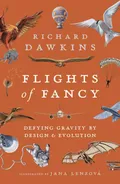
Book Review
Flights Of Fancy by Richard Dawkins
Flight is one of the techniques that has evolved several times in the animal kingdom, and is also something that humans have learned to do with machines. This book explores the different ways that plants and animals use flight through the air to survive, feed and reproduce. It also covers the human inventions that have allowed us to take to the air, and compares the different methods humans have engineered with those that have evolved in the natural world. As well as creatures that use a form of powered flight, such as birds, bats and insects, the book also covers lots of methods of unpowere
-
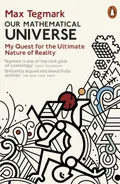
Book Review
Our Mathematical Universe by Max Tegmark
This is a book that explores the nature of our reality. Unlike Existential Physics, this book is prepared to venture into wild speculation about things that cannot (currently) be tested experimentally. In that sense, it's more in line with the view I expressed in that review, that there shouldn't be limits to the areas that science investigates. Tegmark talks about how he's had to be careful to limit the number of more speculative papers he writes, in order to continue to have a reputable career in physics. In this book he allows himself to reach beyond conventi
-
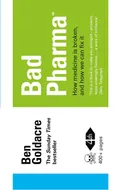
Book Review
Bad Pharma by Ben Goldacre
This book, by the author of Bad Science, takes an in-depth look at the pharmaceutical industry. It covers many different ways in which the pursuit of profits gets in the way of good science, accurate information for doctors, and good healthcare for patients. Some of the early topics will be familiar to readers of Bad Science and Science Fictions, as they cover more general ways in which science is done badly. These topics include published papers which are biased towards positive results, and a culture of scientific pu
-
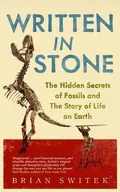
Book Review
Written In Stone by Brain Switek
This is a book about how examining the fossil record has led to an improved understanding of the world we live in and the animals that live within it, and particularly how it has developed over time. One of the early topics covered is the development of the theory of evolution. I was surprised by how long incorrect beliefs persisted among scientists, even after the idea of evolution itself was accepted. Before On The Origin of Species was published, it was common to assume that god created everything, or at least that organisms developed under some kind of supern
-
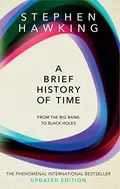
Book Review
A Brief History of Time by Stephen Hawking
This is one of the most famous and best-selling popular science books of all time, so I was interested to finally read it and find out if it's actually any good. The book starts with an overview of modern physics and cosmology, incorporating the two main areas of general relativity and quantum mechanics. Hawking then goes on to write about black holes and his ideas about the origin (and ultimate fate) of the universe. Black holes are the area of physics where Hawking produced his most famous work, including the idea of "Hawking Radiation", so it's really interesting to read about them from t
-
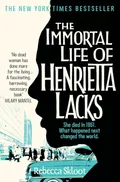
Book Review
The Immortal Life of Henrietta Lacks by Rebecca Skloot
This book tells the story of a woman called Henrietta Lacks, who died of cervical cancer in 1951. During her treatment, cells were taken from her tumour and cultivated in a lab by a scientist called George Gey, who was trying to solve the problem of growing human cells under laboratory conditions for research purposes. Henrietta's tumour cells were the first ones he had managed to grow. In fact, they grew so well that he began giving them to other researchers and they ended up becoming a key tool for scientists researching cancer, other diseases, and how cells work generally. The descendents